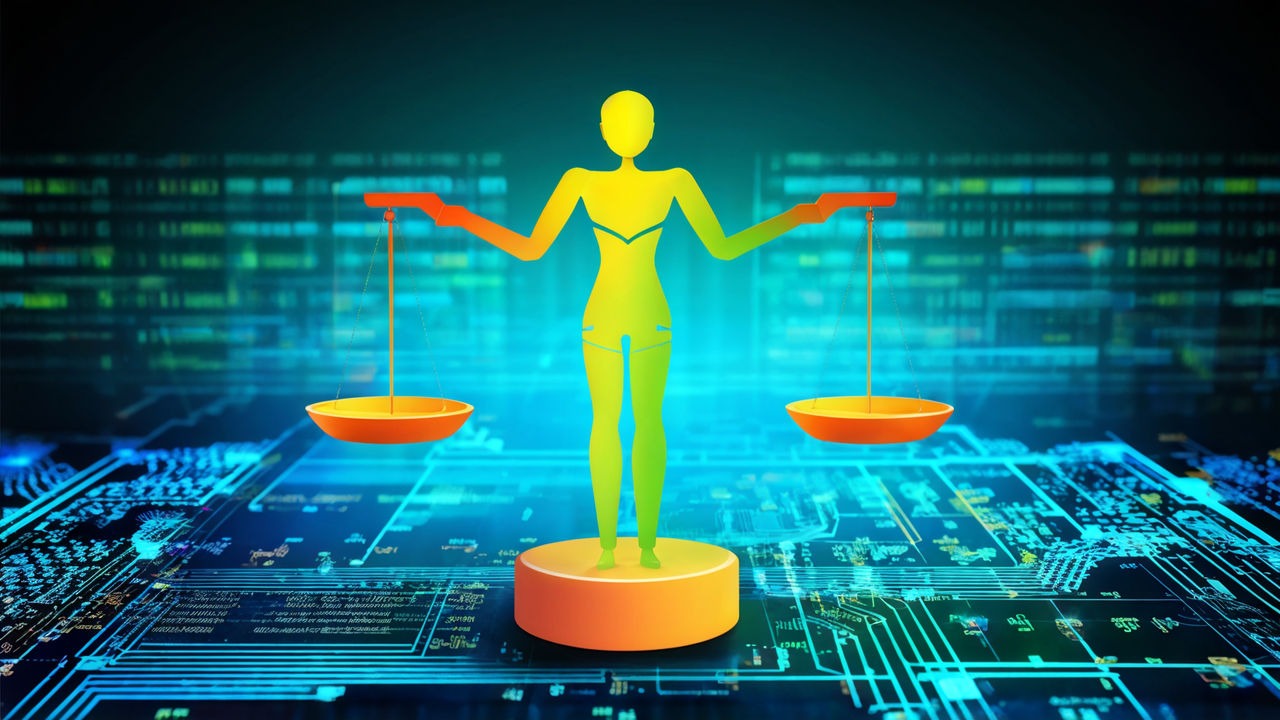Master AI Ethics in Development: Ensuring Fairness & Tackling Bias in 2024
Introduction: The Importance of AI Ethics in Development
As developers increasingly integrate AI into applications, the topic of AI ethics has never been more relevant. With AI playing a central role in decision-making processes, ensuring that these systems remain fair and unbiased is critical. AI ethics in development is about more than following guidelines; it’s about building systems that reflect real-world fairness, avoid discrimination, and make ethical decisions.
The implications of bias in AI can be widespread. For example, a biased recommendation engine can lead to skewed suggestions that reflect societal prejudices. AI developers are responsible for ensuring that their systems are as unbiased as possible by recognizing and mitigating potential issues during development. In this post, we’ll explore strategies to navigate bias and ensure fairness in AI systems for 2024 and beyond.
Identifying Bias in AI Systems
Bias in AI often stems from biased training data. For instance, if an algorithm is trained on data that over-represents certain demographics, its predictions and recommendations can reflect those biases. This can lead to a lack of fairness in various applications, from hiring systems to financial services.
Developers can avoid bias by ensuring diverse datasets and utilizing tools that detect and mitigate bias during development. Tools like IBM’s AI Fairness 360 and Microsoft’s Fairlearn help developers audit models for bias and work toward fairer AI outcomes. Incorporating these tools early in the development pipeline is crucial for minimizing bias and improving overall system fairness.
For those involved in mobile app development, understanding how AI ethics can influence user experience is vital. Consider reading more about the Mastering Machine Learning Integration in Mobile Apps to deepen your knowledge on incorporating AI fairly into mobile applications.
Ensuring Fairness: Strategies for Developers
Developing ethical AI systems starts with building a culture of fairness. This involves several steps, from data collection to deployment, and ensuring fairness should be embedded in every stage. First, developers must adopt a “fair-by-design” approach, which means anticipating potential ethical issues before they arise.
One method to enhance fairness is by using algorithmic transparency. This involves creating systems that explain their decisions, making it easier for developers and users alike to understand the rationale behind an AI’s actions. For example, adopting an Explainable AI approach can help build trust by allowing users to see how an algorithm arrives at a particular decision.
Another crucial step is continuous monitoring. After deployment, AI systems should be regularly audited to ensure they maintain fairness as they interact with new data. Regular updates to algorithms and datasets can prevent the emergence of new biases. You can read more about Revolutionary AI in Web Development to explore best practices for fairness across web development projects.
Navigating Ethical Dilemmas in AI Development
Ethical dilemmas in AI arise when the goals of efficiency and fairness conflict. For example, maximizing algorithmic performance can sometimes come at the cost of fairness. In such cases, developers must weigh the trade-offs and make decisions that align with their ethical priorities.
An essential part of navigating these dilemmas is being aware of regulatory frameworks and guidelines. Governments worldwide are implementing policies to ensure AI fairness, such as the European Union’s General Data Protection Regulation (GDPR), which has stringent rules on AI fairness and transparency. Developers should stay updated on such regulations to avoid non-compliance and ensure that their systems adhere to ethical guidelines.
Additionally, it’s crucial to consider privacy implications when developing AI systems. AI-driven personalization tools, for instance, must respect user privacy and avoid overstepping boundaries. A thorough understanding of privacy best practices, such as those outlined in Master Data Privacy in App Development, is essential.
Looking Forward: Fair AI in 2024
As we move further into 2024, fairness in AI development will only grow more important. Developers will need to balance ethical concerns with the need for innovation. With more tools emerging to support fairness and transparency, now is the time for developers to adopt best practices that ensure their systems contribute to a fairer digital world.
Moreover, AI systems can support developers by offering insights that enhance fairness. For instance, AI-driven analytics can uncover patterns of bias that may not be immediately visible, empowering developers to address them proactively.
In summary, ensuring fairness in AI development is both a technical and ethical challenge. By adopting best practices, such as fair-by-design principles, continuous monitoring, and using tools that support transparency, developers can create AI systems that are more just and equitable for all users.
Discover more from Just-CO
Subscribe to get the latest posts sent to your email.




